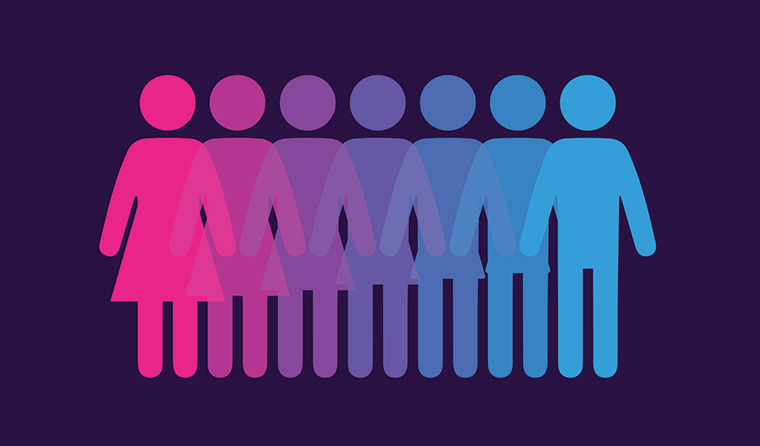Gender affirmation therapy is a type of psychotherapy that focuses on the intersection between gender, sexuality, and identity. This article will explore what this treatment entails, along with its core concepts and how it works.
Contents
- 1 What Is Gender Affirmation Therapy?
- 1.1 Core Themes Of Gender Affirmation Therapy
- 1.2 What Is GAT Used for?
- 1.3 What Can You Expect In a Gender Affirmation Therapy?
- 1.4 How Does GAT Work?
- 1.5 How Effective Is It?
- 1.6 Limitations Of a Gender Affirmation Therapy
- 1.7 Risks Associated With Gender Affirmation Therapy
- 1.8 Criticism Of Gender Affirmation Therapy
- 2 Professionals View On Gender Affirmation Therapy
- 3 Conclusion
What Is Gender Affirmation Therapy?

Gender affirmation therapy is a type of psychotherapy that helps people to explore their gender identity and expression. This treatment can be used for cisgender, transgender, and gender non-binary people. It aims to help individuals feel more comfortable in their skin and align with their authentic selves.
Core Themes Of Gender Affirmation Therapy
Three core themes are addressed in gender affirmation therapy:
- Identity exploration and validation
- Development of self-acceptance and empowerment
- Creation of an authentic gender expression
What Is GAT Used for?
Gender affirmation therapy is often used to help people who are struggling with their gender identity. This could be someone who is transgender, cisgender, or gender non-binary. It can also be helpful for those who are questioning their gender identity.
Who Is Eligible For GAT?
Gender affirmation therapy is available to cisgender, transgender, and nonbinary people. It can be useful for people who are struggling with their gender identity, as well as those who have difficulties relating to their gender expression.
What Can You Expect In a Gender Affirmation Therapy?
Gender affirmation therapy can vary from person to person. However, some commonalities you may encounter.
- First and foremost, the therapist will aim to create a safe and supportive space for you to explore your gender identity. They will also work to build a rapport with you and develop trust.
- Therapists may use several techniques and approaches, such as CBT or family therapy. They may also recommend medical interventions that can help support your gender affirmation journey.
How Does GAT Work?
Gender affirmation therapy works by providing a safe and supportive space for an individual to explore their gender identity. Therapists will often ask a person questions about how they identify, as well as the kind of support that would help them feel most comfortable.
Core Interventions Of Gender Affirmation Therapy
Three core interventions are often used in gender affirmation therapy. These include:
Education About Gender Issues
It is important for individuals who are working through gender affirmation therapy to have a good understanding of transgender issues. This could include learning about different terminology, the history of transgender people, and more.
Cognitive Behavioral Therapy (CBT)
This is a type of psychotherapy that focuses on the connection between thoughts, feelings, and behaviors. CBT can be useful for working through issues surrounding self-esteem, anxiety, and depression.
Family Therapy
This type of therapy helps to provide a safe and supportive environment for family members or loved ones of transgender individuals. It can help to reduce stress levels and promote understanding.
Medical Interventions
These are treatments that may be recommended by a therapist to support someone’s gender affirmation journey. This could include hormone therapy, surgery, or other treatments.
How Effective Is It?
Gender affirmation therapy is often effective because it can help individuals feel more comfortable in their skin. This type of treatment may also allow people to feel more confident about their authentic selves.
The Other View
There is some evidence to suggest the effectiveness of affirmation therapy for transgender people. This includes a study published in 2016 which found significant improvements in depression and anxiety among this population.
Limitations Of a Gender Affirmation Therapy
Gender affirmation therapy can be limited by some therapists’ lack of understanding or experience with this type of treatment. This is something that the client should keep in mind when looking for someone to work with. A therapist may also have limitations based on what insurance will cover.
NOTE: A study published in 2017 showed that one-third of transgender people reported feeling like their therapist was not skilled or knowledgeable enough to provide the support they needed. They also felt as though discussing sensitive topics, such as sexuality and gender, was uncomfortable.
In Addition
The other limitations to affirmation therapy. These include:
- Not all transgender people may find relief through therapy
- Therapy is not a one-size-fits-all approach and what works for one person may not work for another
- Some people may feel uncomfortable or unsafe discussing their gender identity with a therapist
NOTE: Not everyone will want to pursue medical interventions, such as hormone replacement therapy or surgery. These treatments can also come with risks and people need to make an informed decision about what they would like to do in this regard.
Risks Associated With Gender Affirmation Therapy

There are some risks associated with medical interventions for affirmation therapy. These include:
- Hormone replacement therapy can lead to increased risk of blood clots or cardiovascular issues, such as heart disease and stroke
- Surgery may involve complications that could threaten your health in the long-term
- Some people report that they feel uncomfortable with the changes that have occurred due to medical interventions
In Addition
Other risks associated with gender affirmation therapy include:
- Some individuals may not find relief from their symptoms through this type of treatment alone
- Therapy is expensive and can be difficult to access for some people, depending on where you live or what your insurance covers
Criticism Of Gender Affirmation Therapy

Some criticisms surround gender affirmation therapy:
- According to some critics, GAT is not necessary, and that individuals should be able to explore their gender identity without the help of a therapist.
- Some critics have questioned the effectiveness of affirmation therapy, as well as its ethics. In particular, they question whether it is right to make irreversible changes such as hormone replacement therapy and surgery at a young age.
- It often surrounds the idea that this type of treatment is “conversion” therapy. This means that it aims to change someone’s gender identity, which is not something that therapists who provide this treatment believe in.
- Christian community and other conservative groups have labeled it as being harmful or encouraging children to transition while they are growing up.
NOTE: Professionals who specialize in gender affirmation therapy argue that it is a safe and necessary treatment for many transgender people. They also point out that the decision to undergo transition should be left up to the individual, as it is not right for everyone.
Professionals View On Gender Affirmation Therapy

Several professionals view gender affirmation therapy as a positive and beneficial treatment. These include:
Endocrinologists
Some endocrinologists see benefits in affirmation therapy because it can help transgender individuals make informed decisions about their hormone options and may reduce the likelihood of regret.
- This is particularly important for adolescents who are considering taking hormones to delay puberty until they fully understand what this means for them.
Psychologists
Some psychologists believe that this type of treatment is very effective for those who need it, including transgender individuals and their loved ones. They see the value in increasing someone’s self-awareness and promoting acceptance within the family system.
Psychiatrists
There are psychotherapists who view gender affirmation therapy as a way to provide support for those who are struggling with their gender identity. They believe that it can be helpful for trans people to explore their gender identity in a safe and affirming space.
Counselors
Like psychotherapists, counselors often see the value in providing affirmative therapy for transgender individuals. They understand the importance of creating a supportive environment where someone can explore their gender identity without feeling judged or misunderstood.
Therapists
There are several therapists who view gender affirmation therapy as a positive and beneficial treatment option. These include Licensed clinical social workers (LCSWs). Many LCSWs believe in the value of providing affirmative therapy for transgender individuals. They see it as a way to help people feel more comfortable in their own skin and to reduce the feelings of isolation that many trans people experience.
NOTE: Professionals are often in favor of affirmation therapy. This is because they believe it provides trans people with the support and guidance that they need to explore their identity without feeling judged or misunderstood. However, they also recognize that this type of treatment is not right for everyone.
Conclusion
It can be beneficial for transgender individuals to participate in gender affirmation therapy. This type of treatment may help people feel more comfortable about their identity, reduce mental health issues that come with being trans, and increase self-awareness. However, it is important to note that not everyone who identifies as transgender will want or need to participate in therapy. It is also important to remember that there are some limitations to this type of treatment.
If you are looking for affordable Online Counseling MantraCare can help: Book a trial therapy session


